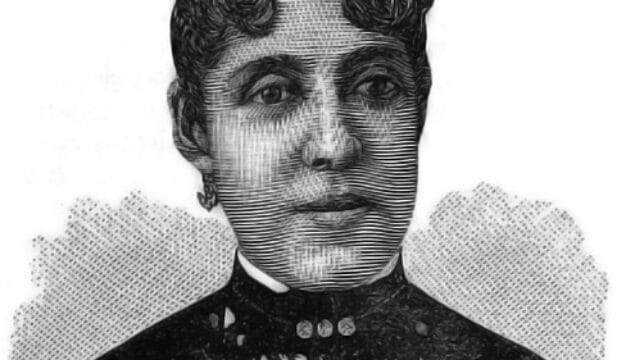Frontiero v. Richardson
There have been many landmark decisions handed down by federal courts in Alabama securing fundamental rights that had been denied to varying minority groups by state and local officials. In the 1973 case Frontiero v. Richardson, the U.S. Supreme Court ruled for a female officer in the United States Air Force stationed in Alabama who sued the federal government for denying her and her spouse health and housing benefits awarded to married male officers.
In 1968, Sharon Frontiero (b. 1942) joined the Air Force as a nurse and was commissioned as a lieutenant and stationed at Maxwell Air Force Base in Montgomery, Montgomery County. Her husband, Joseph Frontiero, who she had married in 1969, was a student at Huntingdon College in Montgomery. Under legislation providing for housing allowances and medical and dental benefits for servicemembers, the government automatically recognized wives of male service members as dependents, rendering them immediately eligible for these benefits. However, Frontiero was denied benefits for her husband because men were not immediately assumed to be depended on their wives; in order to receive benefits, women officers had to prove that their husbands were dependent on them for more than half of their support. Although Joseph was a full-time student at nearby Huntingdon College, he also was a veteran who received monthly benefits of $205, and at $354 per month, his living expenses were considered too low to make him eligible for benefits.
Having been denied these additional benefits, the Frontieros sued the Secretary of Defense, Elliot Richardson, in the United States District Court for the Middle District of Alabama in Montgomery in 1970. They alleged that the difference in treatment for spouses of male and female dependents constituted discrimination under the Fifth Amendment’s Due Process Clause, part of which states that a person cannot “be deprived of life, liberty, or property, without due process of law.” The district court, sitting as a three-judge panel, rejected their claim in 1972, finding no constitutional violation. Because there was no legislative history behind the statutes with which the court could determine congressional intent, the court assumed that the administrative savings from not requiring men to justify dependent benefit eligibility for their spouses provided a rational basis for these laws.
In January 1973, the case was appealed directly to the U.S. Supreme Court, where the Frontieros were represented by Joseph J. Levin Jr. of the Southern Poverty Law Center, based in Montgomery. Also arguing on their behalf was future Supreme Court Justice Ruth Bader Ginsburg, who represented the American Civil Liberties Union as amicus curiae (friend of the court) and addressed at length gender discrimination.
In an 8-1 decision delivered that May, the Supreme Court reversed the decision of the lower court. It held that the legislation providing different criteria for benefit eligibility depending upon gender for the sake of administrative convenience violated the “due process” clause of the 14th Amendment. Justice William Brennan, who wrote the judgment of the court, also noted that the government could not prove that it was saving money and that many female spouses of male service members earned enough income to disqualify them for benefits.
On a broader scale, however, the justices could not agree to adopt a strict scrutiny standard. Only four of the nine justices determined that gender, like race, is an inherently suspect classification and thus subject to a strict scrutiny test of judicial review. This is the toughest standard of judicial review employed by the courts, requiring the government to provide a compelling interest for the legislation at issue and to demonstrate that the law has been narrowly tailored to achieve its compelling purpose. Some of the justices were reluctant to adopt strict scrutiny because the Equal Rights Amendment (ERA) had been approved by Congress the previous year and was before the states for ratification, and thus they did not want to pre-empt a major political decision. Three of the justices concurred in the result, with two of the three applying a much less burdensome rational basis test that only required the government to show some reasonable basis for its legislation. The other justice simply concluded that the statutes in question violated the Constitution. Justice William Rehnquist dissented, relying upon the reasoning of the lower court that had ruled in favor of the government.
By the time the Supreme Court rendered its decision, Frontiero had returned to civilian life. Although the Frontieros were successful in having the extra benefits statutes revised, women’s rights advocates were disappointed that the court did not establish gender as an inherently suspect category requiring the strictest standard of review, as it already had with race. The court’s failure to obtain a majority as to the appropriate standard of review in cases of alleged gender discrimination was remedied in the case of Craig v. Boren, 429 U.S. 190, 97 S. Ct. 451, 50 L. Ed.2d 397 (1976). While rejecting the strict scrutiny standard, the court in Craig v. Boren adopted an “intermediate scrutiny” standard somewhere between the strict scrutiny standard and the rational-basis test. Under this new intermediate standard, classifications based upon gender must be substantially related to an important governmental interest.
Further Reading
- Basic, Christine. “Strict Scrutiny and the Sexual Revolution: Frontiero v. Richardson.” Journal of Contemporary Legal Issues 14 (Summer 2004): 117.
- Sharon A. Frontiero and Joseph Frontiero v. Elliot L. Richardson, Secretary of Defense, et al., 411 U.S. 677, 93 S. Ct. 1764, 36 L. Ed. 2d 583 (1973).



